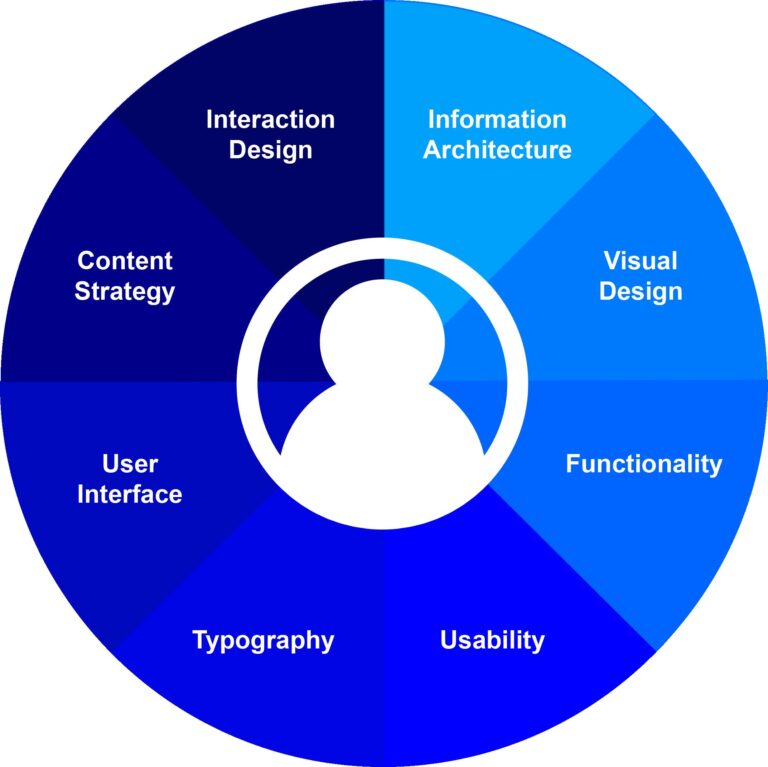In today’s digital world, having an effective online presence is absolutely crucial for any small business hoping to succeed. But simply launching a website is not enough – you need the expertise of a skilled website manager to truly make your site shine.
A website manager acts as the maestro of your online symphony, optimizing and orchestrating all aspects of your website to create an exceptional user experience. From driving traffic through search engine optimization to boosting conversions with compelling content, a website manager empowers small businesses to thrive in the online space.
Read on as we explore the vital role of website managers in giving small businesses a competitive edge. We’ll dive into the key responsibilities they take on, top skills any excellent manager should have, common challenges they face, and tips for choosing the right manager for your unique needs.
Let’s get started on understanding how the right website manager can elevate your small business to new heights!
Key Takeaways:
- A skilled website manager optimizes websites for SEO, user experience, and security.
- Excellent communication, creative problem-solving and adaptability are critical skills for website managers.
- Setting clear goals, collaborating closely, and tracking metrics lead to an effective website strategy.
- Choosing between outsourcing and in-house hiring depends on budget, control needs and other factors.
- The right manager maximizes ROI with up-to-date, secure sites and analytics insights.
Responsibilities of a Small Business Website Manager
A small business website manager takes on a wide range of responsibilities to ensure your site delivers maximum value. Let’s explore some of their key duties:
Regularly Update and Maintain the Website
One of the top jobs of a website manager is to consistently update and maintain your site. This includes:
- Ensuring all information is accurate and up-to-date
- Refreshing product/service pages with new details
- Updating contact info, staff bios, and other content
Staying on top of changes is crucial – there’s nothing worse than misleading or outdated info turning away potential customers.
Monitor Traffic and Performance
Savvy website managers rely on analytics tools to track key performance indicators (KPIs) like:
- Traffic volume
- Bounce rates
- Conversion rates
- SEO rankings
Monitoring these metrics enables data-driven decisions to optimize user experience and SEO.
For example, high bounce rates may indicate content issues to resolve. Drops in organic traffic could mean your SEO needs a boost.
Manage Security
Security is a top priority, so website managers implement vital measures like:
- Regular backups to enable restores
- Software updates to patch vulnerabilities
- Security protocols like SSL certificates
Ongoing vigilance is required to protect your site from cyber threats.
By masterfully juggling these responsibilities and more, a website manager keeps your online presence running smoothly 24/7. Now let’s explore top skills to look for when choosing your website hero!
Choosing the Right Website Manager
Not all website managers are created equal. When researching candidates, look for these vital skills and traits:
Relevant Experience
Ideally, your website manager should have experience in:
- Web development – Design, copywriting, programming
- Digital marketing – SEO, social media, email
- Project management – Timelines, workflows, collaboration
Bonus points if they understand your specific industry!
Strong Communication Skills
Managers must communicate complex technical topics in simple terms. Can they listen actively and translate your vision into reality?
Availability and Responsiveness
Your perfect manager will be available to make updates and optimizations on your schedule. Good communication ensures no balls get dropped.
Budget-Conscious
Make sure to align on rates and scope before kicking off. A budget-savvy manager delivers value without blowing the budget.
Choosing the website manager tailored to your small business needs is key to online success. Now let’s highlight must-have skills for any A+ player.
Skills and Qualities of an Effective Manager
Juggling the wide-ranging responsibilities of website management requires diverse skills. Here are 4 vital competencies top managers demonstrate:
1. Technical Proficiency
Rock-solid technical skills are the foundation of effective website management. Key areas of expertise include:
- Web development – Design, coding, content management
- SEO – On and off-page optimization best practices
- Analytics – Google Analytics, heatmaps, A/B testing
- Troubleshooting – Diagnose and resolve technical issues
Managers should also stay up-to-date on emerging technologies to recommend new tools that can benefit your website.
| Technical Skill | Importance |
|---|---|
| Web Development | Critical for design, UX, customization |
| SEO | Boosts organic rankings and traffic |
| Analytics | Provides data to optimize website |
| Troubleshooting | Quickly fixes bugs impacting ROI |
Example: An experienced manager may suggest migrating your site to a faster web host to improve page speeds.
2. Communication Skills
Communication is vital for explaining technical concepts clearly and managing collaborators. Key skills include:
- Active listening – Ensuring client needs are fully understood
- Interpersonal skills – Smooth collaboration across teams
- Written communication – Conveying complex topics simply
Managers should tailor communications for diverse audiences like clients, dev teams, and vendors.
| Communication Aspect | Why It Matters |
|---|---|
| Active Listening | Builds trust and meets client needs |
| Interpersonal Skills | Enables smooth cross-functional work |
| Written Communication | Explains technical details understandably |
Example: A manager may break down Google Analytics data into an executive summary for the CEO.
3. Creative Problem-Solving
When issues inevitably arise, managers rely on creativity to troubleshoot. Key skills include:
- Innovative solutions – Thinking outside the box
- Audience understanding – Designing optimal user experiences
- Data analysis – Leveraging metrics to guide decisions
Creative problem-solvers deliver unique solutions tailored to each client’s needs and goals.
| Aspect of Creativity | Application |
|---|---|
| Innovative Solutions | Overcomes technical challenges |
| Audience Understanding | Improves UX through design choices |
| Data Analysis | Optimizes site based on metrics |
Example: Slow load times are fixed by selectively compressing images.
4. Adaptability and Flexibility
In the fast-paced digital landscape, managers must adapt quickly to new trends and technologies. Key skills include:
- Agility – Swiftly responding to market changes
- Openness to new tools – Incorporating cutting-edge solutions
- Collaboration – Aligning with organizational goals
Adaptable managers ensure your website keeps up with the latest best practices.
| Aspect of Adaptability | Description |
|---|---|
| Agility | Swiftly responds to new trends |
| Openness to New Tools | Adds innovations that boost performance |
| Collaboration | Works cross-functionally to meet business objectives |
Example: Implementing AMP to optimize for mobile users.
Managers excelling across these 4 areas deliver immense value through optimized, future-proof websites. Next, let’s review common challenges managers face on the job.
Common Challenges and Solutions
Juggling a website successfully takes skill. Here are 3 frequent pain points managers encounter, along with tactics to overcome them:
Challenge: Keeping Updated
Staying current with the fast-changing digital landscape is an endless struggle. Solutions include:
- Maintaining active memberships in industry groups like Search Engine Journal
- Reading blogs/forums daily for news on updates
- Setting Google Alerts for relevant keywords like “algorithm change”
Challenge: Time Management
With endless tasks vying for attention, focus is difficult. Tactics to stay organized include:
- Prioritizing tasks in a project management app
- Delegating responsibilities to specialists
- Setting aside dedicated time for heads-down work
Challenge: Technical Issues
Even seasoned managers occasionally encounter tricky bugs or site outages. Mitigation strategies include:
- Maintaining a knowledge base of common issues
- Investing in training like Google Analytics certifications
- Identifying expert colleagues or vendors to consult
With diligence and know-how, managers can overcome almost any obstacle. Now let’s explore tips for creating an optimal website strategy.
Developing an Effective Strategy
Crafting a winning website strategy takes careful coordination between the client and the manager. Follow these tips for phenomenal collaboration:
Clearly Define Website Goals
Start by aligning on the purpose of your site. Is the goal to:
- Drive sales?
- Share knowledge?
- Promote services?
With a goal in mind, specific strategies naturally follow.
Schedule Regular Check-ins
Consistent communication ensures everyone is on the same page. Dedicate time for check-ins via:
- Weekly video calls to review metrics and outstanding tasks
- Monthly in-person meetings to discuss bigger-picture items
- As-needed Slack or email conversations for quick questions
Regular touchpoints mean goals stay top of mind.
Be Open to Feedback
Your website manager brings specialized expertise. Be open to their suggestions for optimization.
Constructive feedback results in the best outcome.
Set Metrics and Track Progress
Align on KPIs to gauge success. Examples include:
- Increased organic traffic
- Higher lead generation
- More sales inquiries
Consistently measure metrics to determine if strategies are moving the needle.
| Metric | Measures |
|---|---|
| Organic Traffic | SEO success |
| Leads Generated | Content quality |
| Sales Inquiries | Business impact |
Tweak underperforming areas based on data.
Stay Ahead of Trends
Your manager should be on top of the latest best practices in:
- Web design – Mobile responsiveness, page speed
- SEO – Link building outreach, structured data markup
- Paid marketing – Retargeting ads, connected TV
This ensures you build on proven strategies.
With aligned goals, seamless collaboration, and the right KPIs, your website is set up for victory. Next, let’s explore two hiring options to consider.
Outsourcing vs. In-House Hiring
When seeking website management talent, you have two primary options:
- Outsource to an agency or freelancer
- Hire in-house personnel
Let’s compare the pros and cons of each approach:
Outsourcing
Pros
- Cost-effective – Avoid employee overhead
- Access to talent – Experts across disciplines
- Scalability – Add or reduce services as needed
Cons
- Less control – More reliance on vendor capabilities
- Potential knowledge gaps – An outside team may lack context
In-House
Pros
- Deeper institutional knowledge – Understands business intricacies
- More control – The internal team focuses solely on your priorities
- Better alignment – Ensures website supports broader company goals
Cons
- Higher cost – Must fund salaries, benefits, office space
- Slower to scale – Adding headcount takes more planning
Assess your budget, control preferences, existing team skills, and other factors to select the best fit.
Either route can work fantastically with the right partner and oversight. Next, let’s review tips to maximize value.
Maximizing ROI
An optimized website management process is invaluable for cost-effective results. Strategies to maximize ROI include:
Maintain a Current, Secure Site
An outdated or vulnerable site damages credibility and risks disaster. Invest in:
- Regular content updates – Refresh stale pages
- Software patches – Fix security loopholes
- Backups – Enable restores after disasters
Implement SEO Best Practices
SEO is a top traffic driver when managed effectively. Optimize with:
- Keyword research – Align content with searcher intent
- Link building – Earn authoritative backlinks
- Page speed optimizations – Faster loads increase rankings
Monitor Performance
Analytics provide the data to guide optimization. Track KPIs like:
- Bounce rate – Assess content quality
- Traffic source – Determine top channels
- Conversion funnel – Identify drop-off points
Website Traffic Sources Report
| Channel | Sessions | Bounce Rate |
|---|---|---|
| Organic Search | 5,000 | 40% |
| Direct | 2,000 | 60% |
| Social Media | 1,500 | 30% |
Adjust strategies based on insights.
With the right oversight, your website manager elevates performance and value month after month.
Conclusion
A skilled website manager is invaluable for gaining an exceptional online presence. Like the conductor of a symphony, they harmonize the elements of design, content, SEO, analytics, and technology to delight website visitors.
Choosing a manager aligned with your small business goals – whether outsourced or in-house personnel – is key. Collaboration focused on metrics and constant optimization unlocks immense potential.
With the maestro of website management conducting your online presence, customers can’t help but be drawn to your small business like moths to a flame. A manager maximizes your website’s ROI, empowering sustainable growth and competitive advantage.
In today’s digital-first world, a stunning online presence is mandatory for small business success. Let an experienced website manager compose your website masterpiece so you can focus on what matters most – delighting customers. With the right maestro at your side, prepare for standing ovations from new and returning visitors alike.
Frequently Asked Questions
Question: Who can benefit from a small business website manager?
Answer: Small business owners who want to streamline website management.
Question: What does a small business website manager do?
Answer: They handle website updates, security, and optimization.
Question: How much does a small business website manager cost?
Answer: Prices vary, but it can be cheaper than hiring an in-house team.
Question: What if I already have an IT department?
Answer: A website manager can work with your IT team to optimize your site.
Question: How can a website manager improve my SEO?
Answer: By implementing best practices and regularly updating content.
Question: What if I don’t have time to manage my website?
Answer: A website manager can handle everything, freeing up your time.









